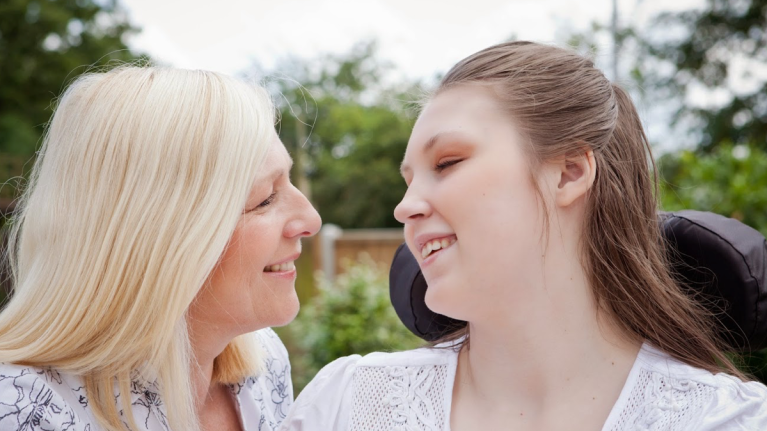
The population of young people with life-limiting or life-threatening conditions is growing[1] and it is vital that their needs are addressed and planned for as they prepare to transition into adulthood. Together for Short Lives is calling for health professionals and commissioners to Step Up for these seriously ill young people.
21 year old Lucy Watts, who has Ehlers-Danlos Syndrome explains why good transition to adult care is essential:
“As young adults we need to be supported to achieve the best quality of life possible… We are not children any more, however we are also not yet mature, experienced adults either.”
Together for Short Lives today launches Stepping Up – a guide to enabling a good transition to adulthood for young people with life-limiting and life-threatening conditions, providing a generic framework that can be adapted locally to plan multi-agency services for these young people as they become adults.
Stepping Up is written from the perspective of health as the lead agency but is designed to support the transition of young people with life-limiting conditions in all aspects of their life – from healthcare to education and lifestyle.
Dr Jacqueline Cornish OBE, National Clinical Director for Children, Young People and Transition to Adulthood at NHS England says:
“This transition guide provides an excellent framework for planning and providing care and support to this often overlooked group of young people with life-limiting and life-threatening conditions as they transition to adult services. It not only addresses their complex health and end of life care issues but, importantly, how we can support them to achieve their ongoing wishes and hopes for their future as young adults. I recommend it to providers and commissioners of services alike.”
We have also produced an accompanying guide for CCGs called Commissioning for smooth transitions and age-appropriate care for young people with life-limiting conditions in England. It is intended to help CCGs commission services for young people aged 13 – 25 and helps them answer the following questions:
- What do young people with life-limiting conditions need? How does this differ from children or older adults?
- How many young people with life-limiting conditions should CCGs expect to commission care for?
- Who provides services to young people with life-limiting conditions?
- What should action should CCGs take as part of the commissioning cycle?
- Who else should be involved in commissioning for this population?
- What outcomes can CCGs improve by implementing these recommendations?
The Transition Commissioning resource is available for download from here. Our Stepping Up resource has been superseded by the Joint Commissioning Palliative Care Resource, which is available for download from here.
[1] Fraser et al (2013): Prevalence of life-limiting and life-threatening conditions in young adults in England 2000-2010: Final Report for Together for Short Lives
As young adults we need to be supported to achieve the best quality of life possible... We are not children any more, however we are also not yet mature, experienced adults either
Lucy Watts

